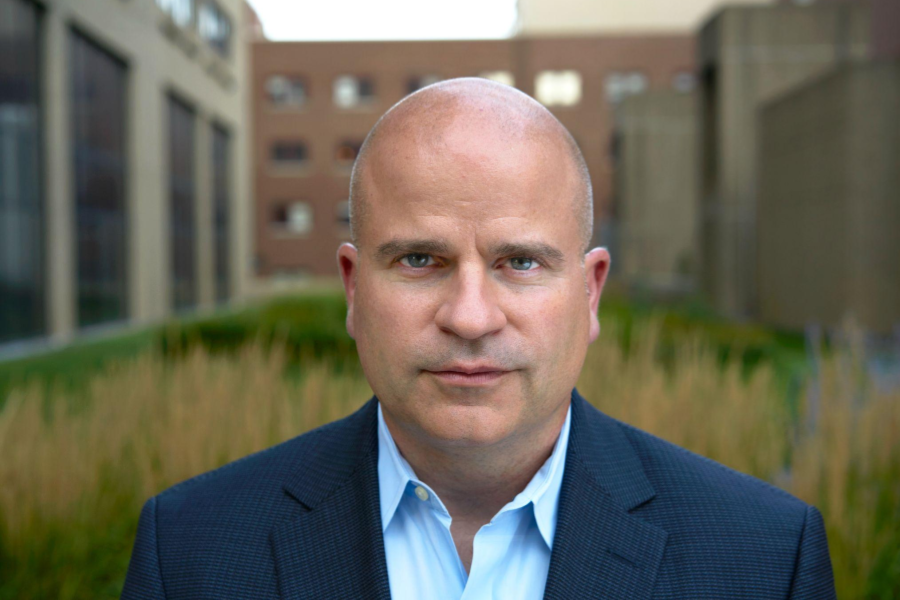
In Minnesota, 97,000 people are projected to have Alzheimer’s disease this year. June is Alzheimer’s and Brain Awareness Month, and Professor Joseph Gaugler with the School of Public Health answers questions about Alzheimer’s, its symptoms and risk factors.
Q: What is Alzheimer’s disease?
Dr. Gaugler: Alzheimer's is a type of dementia that causes problems with memory, thinking and behavior. It is the most common form of dementia, which is a general term used to describe impairments in mental function that compromise one's ability to carry out day-to-day activities. Alzheimer's disease is not a normal part of aging, and it worsens over time. There is no current cure for Alzheimer's disease, but symptoms can be treatable.
Q: What are the risk factors for Alzheimer’s?
Dr. Gaugler: Risk factors for Alzheimer's disease include:
- Advancing age, as approximately one-third of people over the age of 85 are at risk of having Alzheimer's disease.
- Having a family history, especially those with a parent, sibling or child with Alzheimer's disease.
- Having various genetic dispositions such as the protein APOE4, which contributes to Alzheimer's.
- Being African American, Latinx or a woman, as women are more likely to get Alzheimer's disease.
- Having high blood pressure, high cholesterol and poorly controlled diabetes.
Q: Are there preventative factors?
Dr. Gaugler: A significant, international report published in The Lancet in 2020 suggested that 40% of one’s lifetime risk of dementia is modifiable. In addition to those listed above, risk factors that appear to contribute to dementia that can be changed include mid-life hearing loss, social isolation and depression, and air pollution.
Q: Are there early warning signs people should be aware of?
Dr. Gaugler: The earliest symptoms may include forgetting recent events or conversations. As Alzheimer’s progresses, memory and other important mental functions such as communication, the ability to pay attention, judgment and visual perceptions become more impaired. In the later stages of the disease, persons with Alzheimer’s generally have significant difficulty performing basic activities to maintain independence.
The Alzheimer’s Association has created a valuable “10 Early Signs and Symptoms of Alzheimer’s Disease” worksheet that can help distinguish between normal age-related changes in thinking and memory, and those we may want to follow up on with a healthcare professional.
It's important to note that there is no one test for Alzheimer's. Instead, specialists use a number of approaches to help come to a conclusion of a diagnosis. These include obtaining a medical and family history, neuropsychological tests, blood tests and brain imaging.
Q: What are you doing to expand research on Alzheimer’s?
Dr. Gaugler: Our research has focused on evaluating innovative services and programs to support persons with dementia and their family caregivers. This includes several multi-year studies and efforts funded by the National Institute on Aging, Centers for Disease Control and Prevention and U.S. Department of Defense, including:
- The Building our Largest Dementia infrastructure (BOLD) Public Health Center of Excellence on Dementia Caregiving, a national center designed to disseminate tools, resources and best practices to public health agencies across the U.S. to better support family caregivers of people living with dementia.
- A national evaluation of family care management and support programs integrated into adult day service settings.
- A multi-component training program to enhance the dementia care capability of senior volunteers in Minnesota and North Dakota.
- A home-based support program for people with memory concerns who live alone.
- An Academic Career Leadership Award from the National Institute on Aging to develop and deliver a curriculum designed to advance the science of dementia care.
Joseph Gaugler is the Robert L. Kane Endowed Chair in Long-Term Care and Aging, Distinguished McKnight University Professor and director of the Center for Health Aging and Innovation in the University of Minnesota School of Public Health. His research interests include the sources and effectiveness of long-term care for older adults with dementia and the effectiveness of community-based and psychosocial services for older adults with memory concerns and their caregiving families.
- Categories:
- Health
- Health conditions
- Health policy




